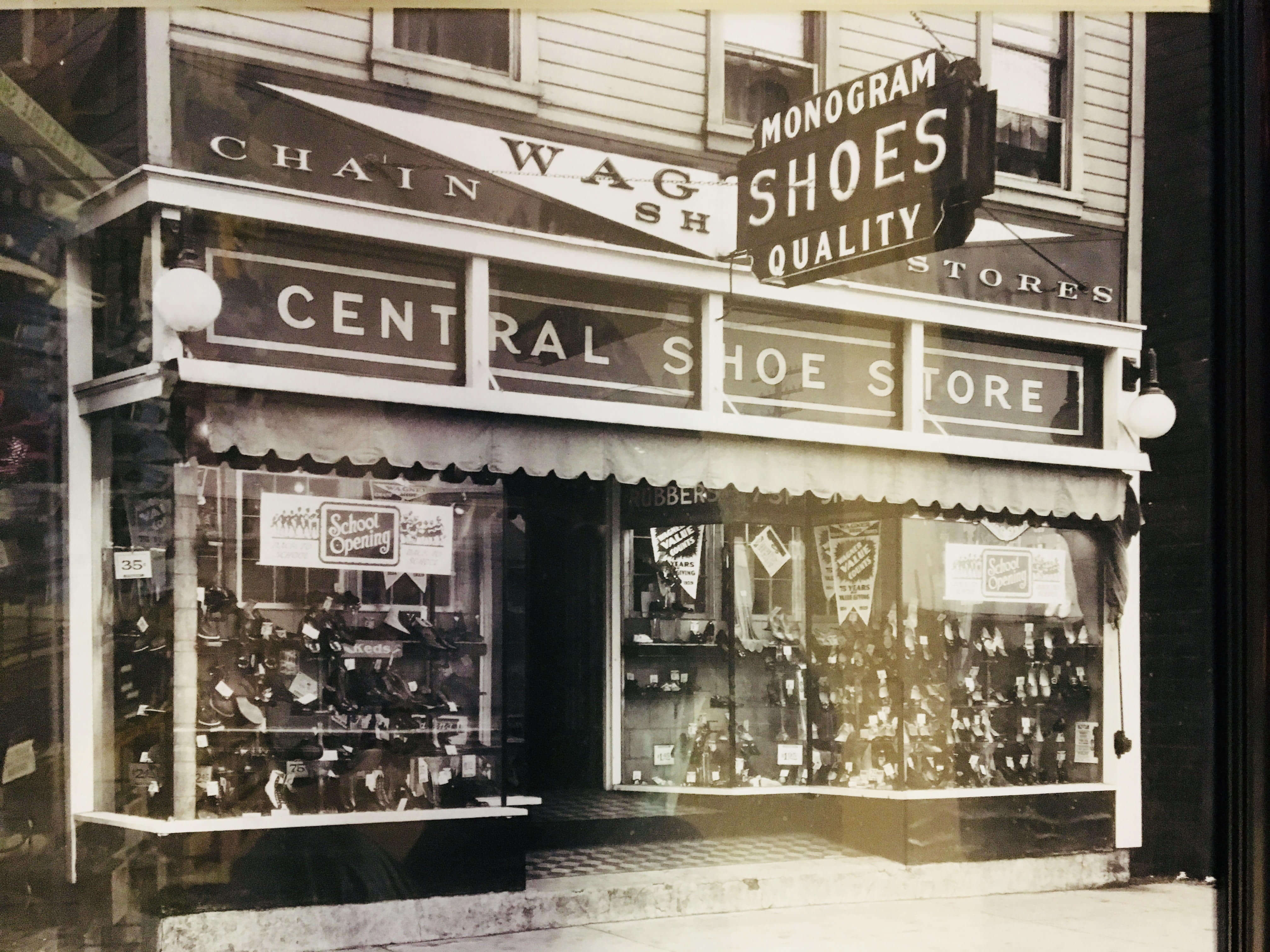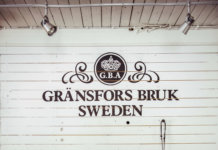Wagner Quality Shoes, a sixth-generation Pittsburgh-based shoe store that dates back to 1854, meets the expectation of craftsmanship their name implies in an unconventional way.
Founder Peter Wagner, son of a cobbling family from Burscheid, Germany, came to the United States in 1849. His shoes exemplified the legacy of superior craftsmanship transmitted to him over countless generations; a factor which undoubtedly set Wagner Quality Shoes apart from the competition.
After the second generation, however, the Wagners stopped manufacturing their own products and transitioned to a strictly retail operation. Yet, despite no longer making the shoes, they have retained a loyal customer base over the subsequent four generations of ownership. Their business has survived economic tribulations not limited to world wars, the great depression and several recessions.
In maintaining a reputation for quality and craftsmanship without actually producing a product, rather, curating it, they epitomise the concept of retail craftsmanship.
With the manufacturing process out of their hands, they transitioned their focus to how they conduct their retail operation. Other stores may have a more comprehensive selection, but nobody provides a better experience.
Their attention to detail is exhaustive: to help customers with foot pain, they have a digital scanning device to locate specific pressure points. A certified on-staff pedorthist is available to ensure customers feel great walking out of the store.
The practice of retail craftsmanship is helping them thrive in a digital age when many consumers have started buying their shoes online.
Recently, Tharawat Magazine had the opportunity to sit down with sixth-generation family business member Mark Wagner to discuss his family’s long and storied history, what craftsmanship means in the modern marketplace and what it is like trying to compete against online retail giants.
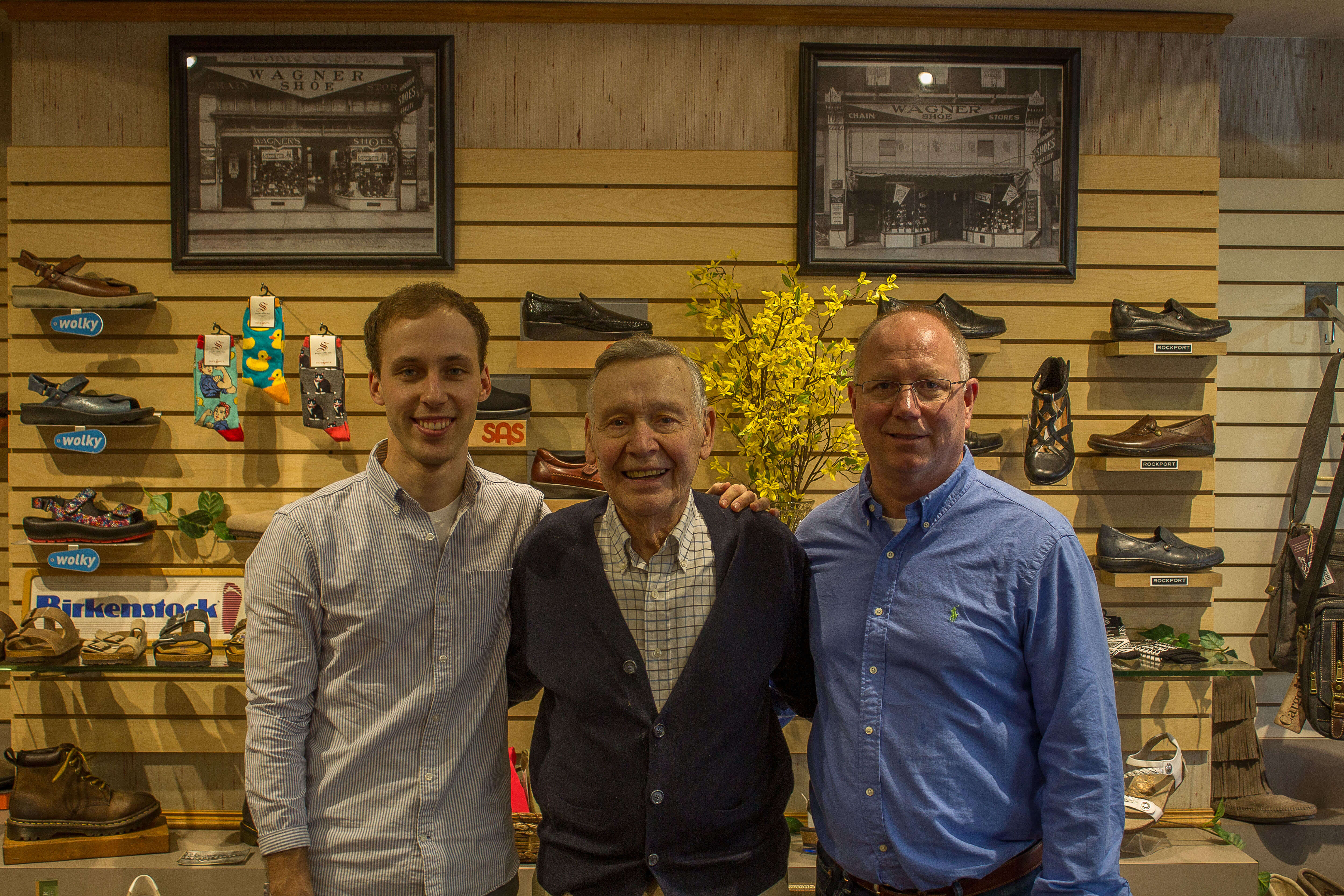
How did your family start out in the shoe business?
My ancestor, Peter Wagner, came from a cobbling family. When he arrived here in the mid-19th century, he purchased an existing shoe store to put his training into practice. He renamed it Wagner Shoes.
The business eventually passed to his two sons, John and Sylvester. They first emphasised customer service in deciding to treat all their customers equally. At the time, businesses generally did not.
It was my grandfather, the fourth generation, joining in the late 1940s, who really became the face of the store. He is 91 now, and he still comes in to make all the bank deposits. Sometimes, customers in their 70s tell us that he sold them their first pair of shoes. When he started, it was not an economically ideal time. Most people would have baulked at the opportunity, but he took it on and loved it. Now, my dad runs the business, and under his watch, Wagner Quality Shoes has continued to grow.
It was my grandfather, the fourth generation, joining in the late 1940s, who really became the face of the store. He is 91 now, and he still comes in to make all the bank deposits.
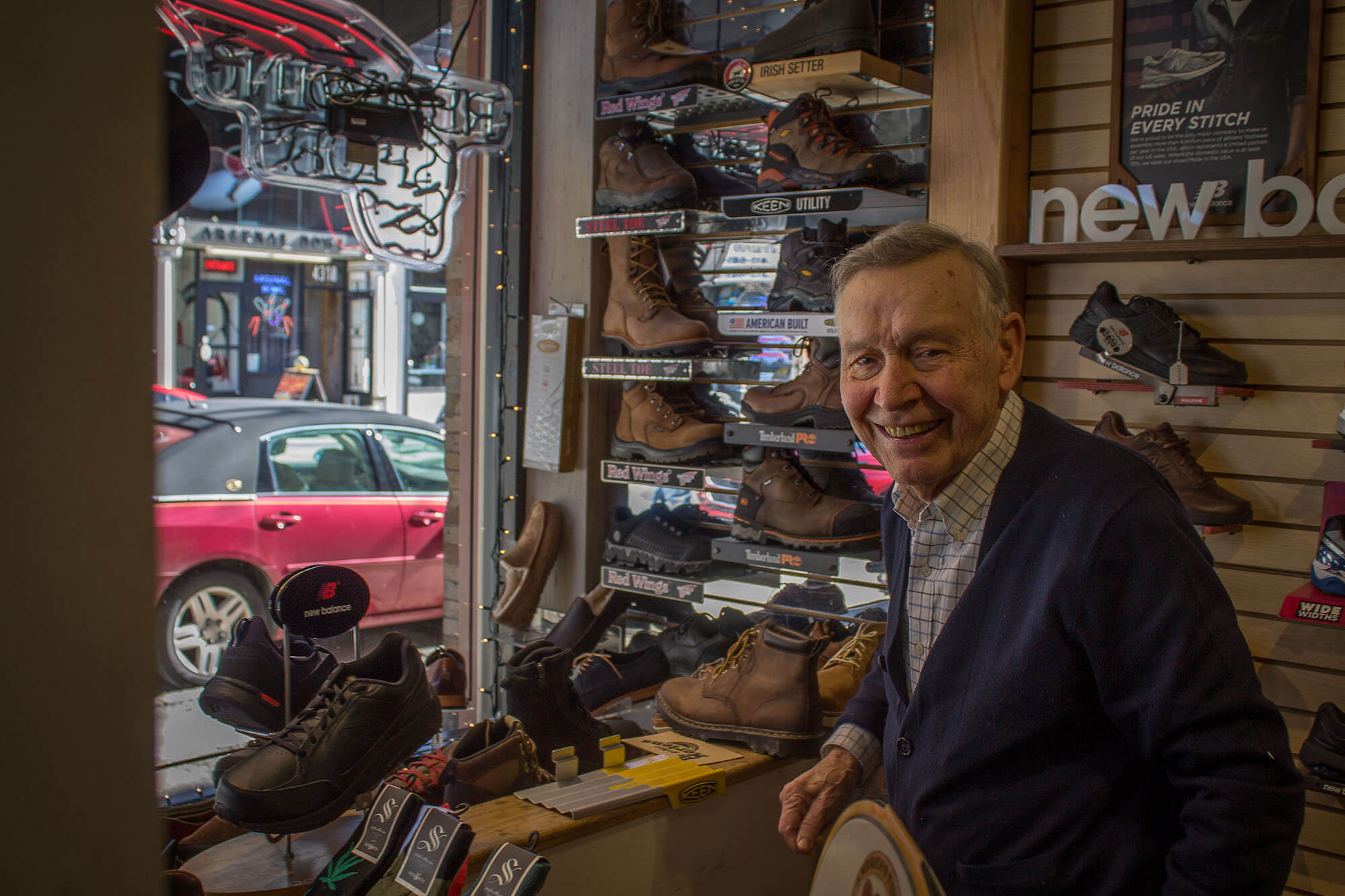
window, courtesy of Wagner Quality Shoes.
Did you join the business voluntarily or was it always understood you would take up a position?
I worked at the store through high school, selling shoes on the floor and stock boarding. Even through college, I continued to work in the business.
In fact, as I was getting closer and closer to graduation, I did a series of job interviews, but none of the prospects appealed to me. So, I joined full-time right after school, which was about four years ago; my satisfaction depended on it.
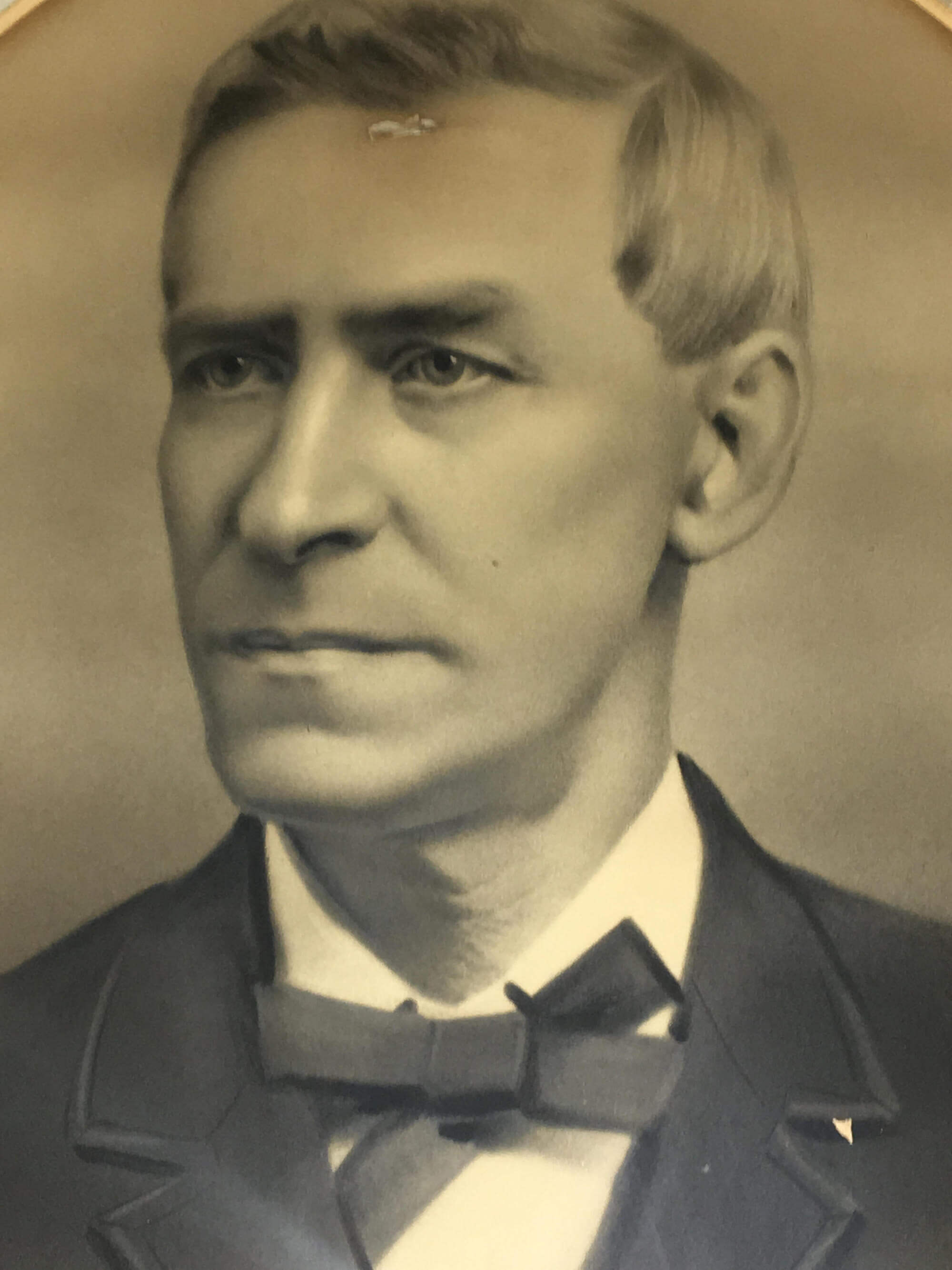
What did you learn from your grandfather and your dad in those first few years?
They taught me to stay nimble and adapt, utilising my strengths. For example, in their day, Wagner’s primary competitors had a much wider selection, but we thrived by helping our customers find the right shoes. Today, however, the challenge is competing with the online giants, where consumers can buy a new pair of shoes with the click of a mouse.
The solution to both these challenges lies in our strongest asset, which is the determination to serve our customers better than anyone else. We have the friendliest, most knowledgeable and most patient staff. The products we stock are important, but our customer service is what keeps the lights on and the doors open. This quality is Wagner Shoes’ defining feature.
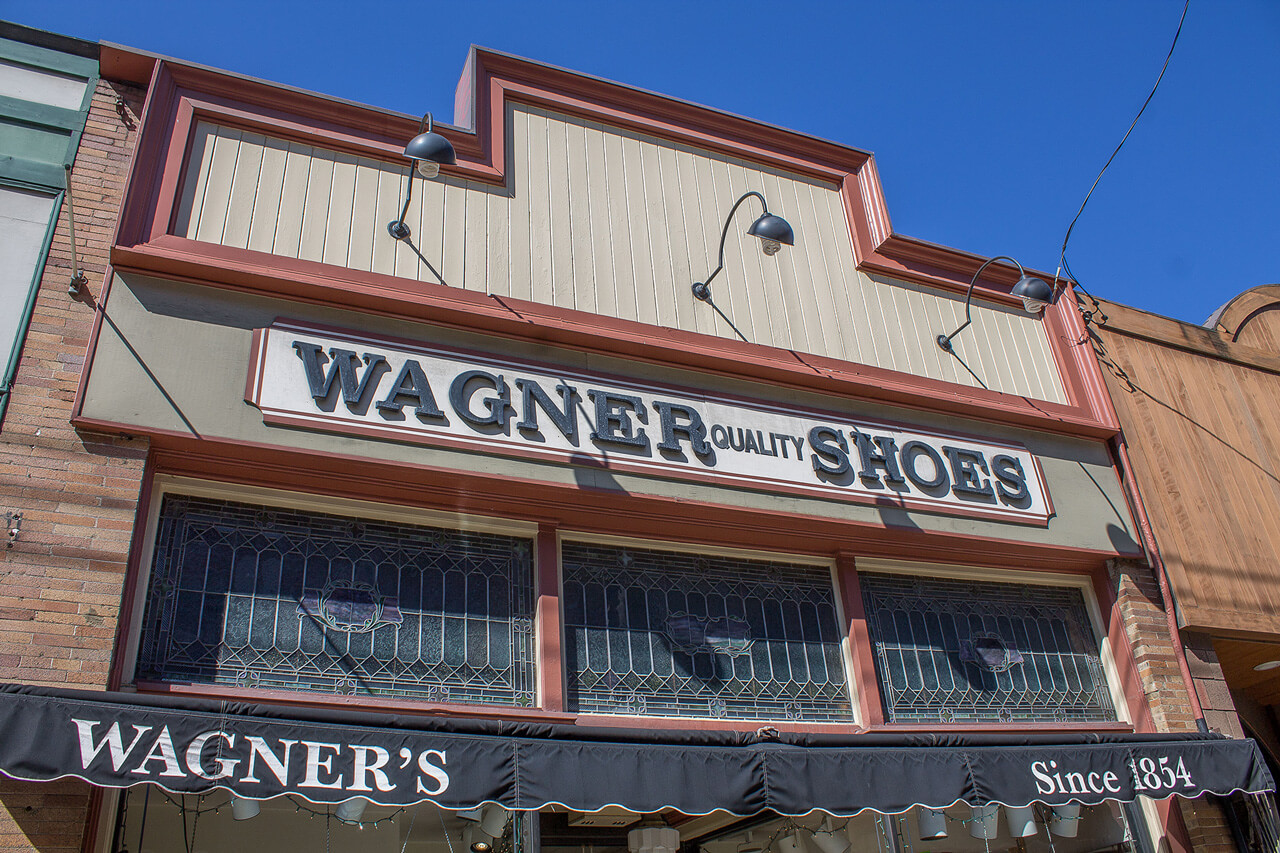
Are quality and care when it comes to customer service as important now as they have been in the past?
Quality craftsmanship is as important to today’s customer than ever. We thrive in a niche market. We carry high-end shoes that are also comfortable and supportive. Most of our customers require very specific help when they come in.
Whether it’s plantar fasciitis or bone spurs, our customers know we can provide answers and relief to their discomfort. They are not people who, on a sudden whim, buy a pair of sandals, or at least that’s not why they come to us.</p>
How do the previous Wagner generations view the importance of modern marketing tools like social media?
Even grandpa, who is 91, understands that the world is changing – modernity can’t be ignored. I’m implementing these tools because even though we sell shoes out of a physical store, we can’t turn our backs on the realities of modern marketing and ignore the digital space.
To that end, we have a new website and are actively engaged on social media and in email marketing. My father and grandfather don’t necessarily understand all of it, but they support it because they know that we have to be open-minded and open to change.
Sometimes, when I talk to others in the industry, I hear about family dynamics where the younger generations struggle to convince their parents and grandparents of the importance of acclimatisation.
It is understandable for people who have seen success over a long time to trust their egos and attempt to replicate the past, but it is a dysfunction nonetheless.
To their credit and to that of the family business, my father and grandfather are always willing to hear me out and try new things.
Sometimes, when I talk to others in the industry, I hear about family dynamics where the younger generations struggle to convince their parents and grandparents of the importance of acclimatisation.
How do you approach innovation without losing the traditional qualities that people associate with Wagner Quality Shoes?
My grandfather and father are incredibly humble. They don’t talk about our rich history enough. When I joined the business, however, it was immediately apparent that our history is the lowest-hanging fruit from a marketing perspective.
History is the ideal vehicle for us to solidify our message and garner enthusiasm for what we stand for. So much of what I do on social media is simply telling our story.
I’m relating our values through our history on a modern digital platform in a way that addresses our past and our future at the same time. Posting about our digital foot analysis machine shows Wagner’s innovative edge while also speaking to our long-held value of outstanding custome>r service.
I also post historical photos and stories. It’s gratifying to see how well this content is received. Any family business can use nostalgia as a tool to connect to their customer base.
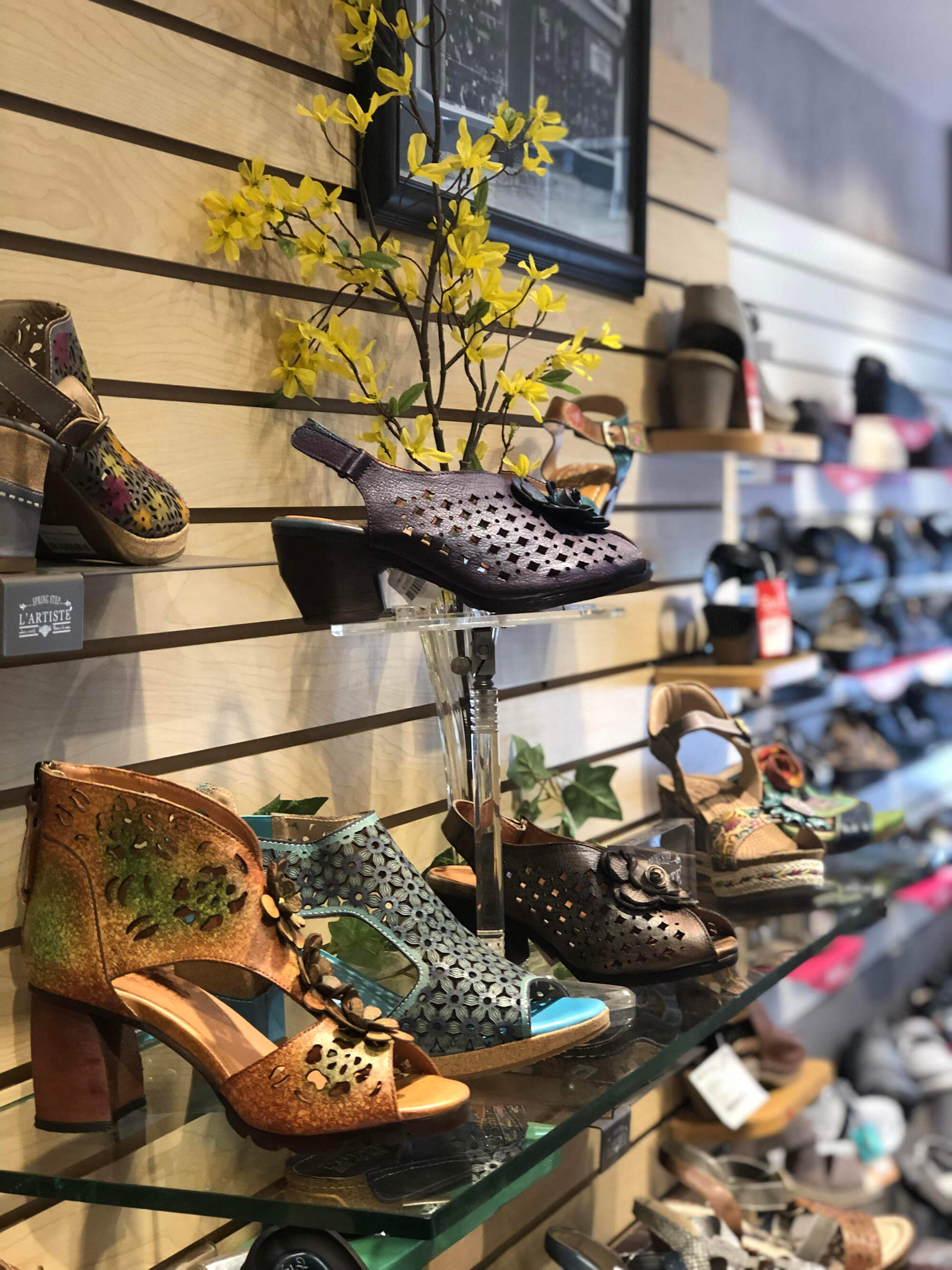
Will the value you put on craftsmanship and customer service survive in the face of disruptive modern technology?
If I had a definitive answer to that question, my life would be a lot less stressful.
That said, 30 years ago, my grandpa thought discount stores were going to put us out of business. Now, they are the ones facing insolvency. Today, everything in our store can be found online. There is no such thing as exclusivity in products anymore.</p>
The modern realities of mass production are such that shoes will be the same almost anywhere. Success in a market typified by uniformity> will hinge on differentiation.
Nobody comes to our store looking for a specific shoe. Instead, they come in because they are looking to be taken care of by skilled professionals in a personalised environment, which is something that e-commerce cannot offer.


